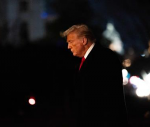You are here
Netanyahu’s threat to annex settlements
Apr 09,2019 - Last updated at Apr 09,2019
Just days before his country’s general elections, Israeli Prime Minister Benjamin Netanyahu declared his intention to annex the settlements built illegally over the last 50 years on occupied Palestinian land. This comes as no surprise as predictions in that direction went much further. Following US President Donald Trump’s recent recognition of Israeli sovereignty over the occupied Syrian Golan Heights, which was preceded by his recognition of Jerusalem as the capital of Israel, many analysts warned that the next step may include the West Bank, not just the settlements.
Long before Trump’s Jerusalem and Golan declarations, almost half a century ago, both places were occupied and, soon after, annexed by Israel.
Given that such actions are illegal, they were rightly met with large-scale condemnation and rejection. The UN archives are loaded with resolutions that deplored Israel’s violations and demanded revocation. None of the said UN resolutions have been implemented. None of the protests of the Arab victims of Israel’s ongoing aggression since 1948 have had any meaningful effect.
Commenting on Netanyahu’s recent announcement on annexing the illegal settlements, Palestinian Authority Foreign Minister Riyad Al Malki warned that if Netanyahu follows through with his campaign promise, he will face a “real problem”. If such an option is available, why wait so long?
Such a Palestinian response also comes as no surprise. The count of Palestinian and Arab condemnations of continuous Israeli violations of international law, aggression, occupation, oppressive measures against the Palestinians, war crimes, invasions, assassinations and much more is beyond imagination. Israel is so accustomed to it, that it lost any actual effect.
Condemnations are never meant to be an end of their own. Rather, they happen as a warning that would be followed by real action once not heeded. Neither the UN, nor the Arab states have ever pursued their legitimate condemnations of flagrant violations of international law and other people’s rights with follow-up measures.
The pattern, so far, has been to address the complications of the original problem rather than the problem itself.
In June 1967, Israel invaded three Arab countries: Egypt, Jordan and Syria. Except for the Egyptian occupied territories that were recovered by negotiations and a peace treaty, the Syrian and the Palestinian lands remain occupied and heavily colonised for over 70 years now. Israel obstructed all attempts, even when fully supported by Washington, indeed, by the so-called international community, to negotiate a reasonable settlement with the Syrians and the Palestinians, and yet the occupation was never seriously challenged.
Israel started building illegal settlements in the Golan, the West bank, in and around Jerusalem in particular, and in Gaza since the early days of the 1967 occupation.
Counter protests and condemnations for that matter adapted to the occupier’s excessive measures. They followed the following pattern:
The protests against the illegal settlements overtook the issue of the occupation, the protests against settlement expansion omitted the original settlements, protests against the so-called illegal settlements made the other settlements look legal, protests against oppressive measures against occupied, or besieged, Gaza, Palestinians also took the permanent occupation for granted, and so on. Always moving the goal posts to the latest atrocity, without persistent recall of the core problem; the occupation.
Currently, the main focus of all concern and attention has shifted to President Trump’s two Jerusalem and Golan declarations and Netanyahu’s threat to annex the settlements. There is no question that all such moves are illegal, hostile, destructive and dangerous. They also constitute a direct threat to regional peace and stability. As such, the concerned parties have every right to reject and condemn them.
But in actual fact, they do not change the reality on the ground: the reality of decades-long occupation, colonisation and annexation. They may change the title from “occupied” to “owned”, but that means nothing as the change comes from the aggressor as well as from an unauthorised party.
What the Palestinians and the Arabs should put on the table is the occupation and the legitimate Palestinian rights, and to demand full implementation of relevant UN resolutions. Once the occupation ends, all the other complications, the so-called final status issues, cease to exist. The occupation is illegal and the case against it is valid. This is the mother of all issues. Fragmenting the conflict into “final status issues” was misleading and wrong. It is time that all the failed tactics are radically reviewed. There is one single issue and that is the illegal occupation.












